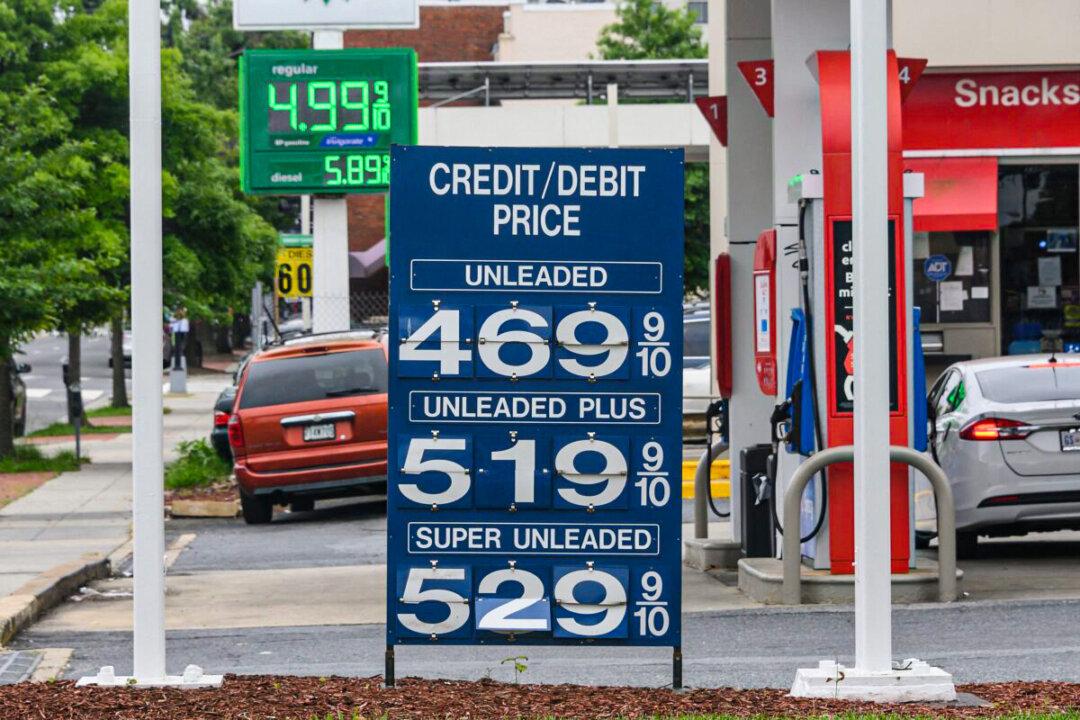Gasoline prices hit a new record on May 31 after the European Union agreed to a partial ban on Russian oil imports by the end of 2022 as part of the sixth package of sanctions against Russia over its invasion of Ukraine.
In the United States, prices at the pump rose to a national average of $4.622 per gallon, according to AAA, up from $4.619 on May 30 and $4.598 a week ago.




